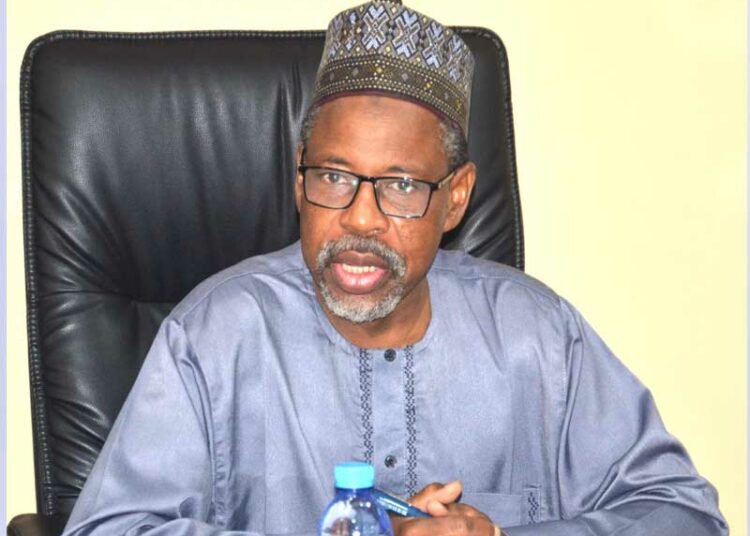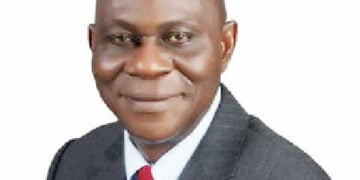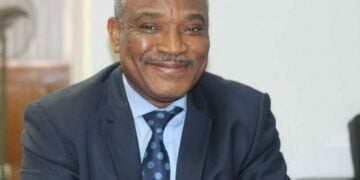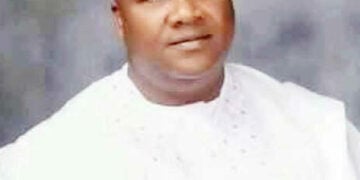What are the statutory duties of NEMSA and how have you carried them out?
In summary, our statutory activities are ensuring that all electrical equipment and installations in the country meet quality and safety standards, certifying and licensing qualified electrical personnel and contractors to guarantee efficient service delivery, and inspecting power systems and networks to prevent outages and accidents.
NEMSA also verifies meters by ensuring an accurate metering system for all consumers in Nigeria.
The agency was established through the NEMSA Act of 2015, now Electricity Act 2023, to carry out enforcement of technical standards and regulations, technical inspection, testing and certification of all categories of electrical installations, electricity meters and instruments to ensure the efficient production and delivery of safe, reliable and sustainable electricity supply, guarantee safety of life and property in Nigeria.
The major function of NEMSA is the safety of life and property in Nigeria through ensuring standards in the electrical supply sector and other allied industries.
We enforce the standards that were developed by the Nigerian Electricity Regulation Commission (NERC), Standards Organisation of Nigeria (SON) and other agencies. For clarity, I can say that these activities are grouped into five areas – new electrical installations that are coming before they are put into use. We carry out inspection, testing and certification of electrical installations.
We have adequately carried out these duties through nationwide monitoring of the facilities and ensuring compliance with standards.
How are you addressing concerns about the importation of substandard electrical products into the country?
The Act establishing NEMSA mandates the agency to collaborate with SON in ensuring that all electrical materials and equipment are of the right quality and standards. We collaborate with SON to achieve this. We currently have a memorandum of understanding (MoU) between us, and NEMSA is part and parcel of the committees that were set up by SON to develop these standards. I agree with you that there are a lot of substandard electrical materials and equipment in the country. We are not at the entry points. But the Customs and SON have been at the entry points. So, our collaboration with SON is that when we carry out statutory activities such as the inspection of these electrical installations, when we identify substandard electrical materials/equipment, we ensure that they are promptly removed from the system. We have a standing committee between us that is in charge of identifying and ensuring that these materials are removed from the market.
So, we are currently looking at an MoU to identify more areas of collaboration, we had a meeting with the new DG of SON, and informed him about the collaboration. We are also collaborating with other agencies such as the Federal Competition and Consumer Protection Commission (FCCPC), where we give them expert advice on cases of consumers having issues with electricity supplies. We are also working with the National Insurance Commission (NAICOM) to ensure that facilities to be insured are inspected and certified before such insurance policies are signed.
We are also in talks with the Nigeria Customs Services (NCS), especially on substandard materials that are coming into the country to allow NEMSA access to their platforms where we can inspect and certify these materials before they enter the country. This is a process that is going on. In the next couple of years, this issue of substandard materials and equipment will be a thing of the past.
When there are cases of violations of your regulations, do you sanction the offenders? What is the nature of such sanctions?
The law establishing the agency has made provisions for sanctions but the process is very long. That was why during our stakeholders’ engagements, especially at the roundtable discussion with the judiciary, I pointed out to them that we need to have certain provisions in the Act that will expedite our process of sanctioning.
I stressed the need for us to have a special tribunal that will dispense justice in a short time. We also saw the need for giving the counsel of NEMSA the fiat to prosecute offenders in court instead of going through the Federal Ministry of Justice.
So, what we have now is a long process. First, the moment we discover a violation, we issue an enforcement notice, stating these violations and giving you the time to correct them. Failure to do so will lead us to issue what we call an enforcement order. Failure to abide by the enforcement order, establishes that an offence has been committed. From that point, we proceed to the prosecution of that violation in court.
We have also sanctioned certified electrical personnel by withdrawing their certificates. That made them re-certify.
Through our inspections, we also monitor their performances.
Do you certify the meters being imported into Nigeria?
We have a programme on metering to ensure that the gap in the country is closed as quickly as possible. One of the programmes is what we call the Presidential Metering Initiative which is expected to bring in about seven million meters into the country in phases and NEMSA is fully involved. We ensure that the meters are tested and certified before they are allowed to be deployed and installed. The ones that are coming under the World Bank programme, we are already in the process of certifying them. Those that are in our labs now will be tested and certified.
A tested and certified meter has a NEMSA seal, it is green in colour; it has the inscription of NEMSA on it, the test level will show the date it was tested and the date it was supposed to be re-tested. they are to be recalibrated. If your meter does not have these features, it means that it has not been tested by NEMSA. You need to raise the issue as quickly as possible with the utility companies and address it to NEMSA immediately for us to take action.
What are the findings from your frequent performance audits?
One of our statutory activities is the investigation of electrical equipment. When we analysed the investigation we undertook recently, we discovered that most of the causes of breaches in standards are non-adherence to procedures in the operations of these networks and their maintenance. So, we had to look at the safety manuals, and at the end of that audit of the utility companies, we ensured that they implemented these safety values.
How many companies have you audited?
We have audited eight companies. It is an ongoing exercise and we have made a lot of observations through the audit. We have what we call health and safety codes that were developed by NERC. So, it is part of these documents that contain the regulations that we are enforcing. The safety rules and manuals that we approved, we embarked on a follow-up to ensure that the utility companies were implementing them. We also interviewed the personnel to know their level of training and if they have the competencies. We have also seen personnel working in power lines without the necessary personnel protective equipment (PPEs).
What would you consider to be your achievements since you assumed office three years ago?
When I assumed duty, I looked at the successes recorded and made a plan to continue with them. I looked at some of our activities that require modifications and expansion.
I can categorise these achievements in the spheres of our statutory activities. We have redoubled the number of inspections, especially on new electrical installations. The monitoring of the networks has been intensified across the country. We have put up directives and reviewed incidences. They have been reducing compared to when we started. I can remember that when we started, we investigated 110 cases in 2015 and this has gone down to 39 in 2021.
What are your challenges?
One of our major challenges is the lack of permanent office accommodation. The building we operate from is rented and it is not conducive for the performance of our daily activities. We have been looking for a permanent accommodation. Another challenge is inadequate funding. With this problem, we are not able to make adequate provisions for our activities across the country.
We need state-of-art equipment for our certification. This has affected our activities. We need operational vehicles; we also have the challenge of personnel. We are currently about 300 and we have offices in all the states of the federation and the headquarters. We need more personnel to carry out our statutory activities across the country.





